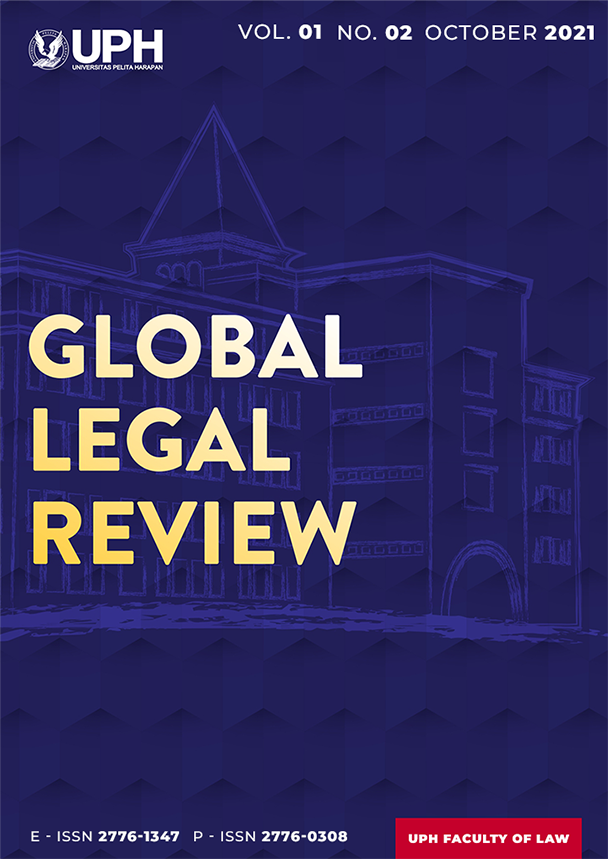Notary Malpractice in Carrying Out Their Duties and Authorities
DOI:
https://doi.org/10.19166/glr.v1i2.2879Schlagworte:
Notary malpractice, authentic deed, Notary’s Code of EthicsAbstract
As an official whose duty and authority is making authentic deeds, a Notary is responsible for all the content of the deed he/ she made and all the information relating to the deed made before/ by him/ her, based on the Official Oath of the Notary and Notary Law. Notary is a noble position (noblese obligue), and Notaries are expected to keep their dignity as official. The consequences of such honorable position and authority of Notary is that Notaries are obliged to do everything that is regulated in the Notary Law and obey everything that is prohibited by the law, regulations, and the Notary’s Code of Ethics, in carrying out both their duties and authority, Notaries are responsible for any consequences arises from any violation of the position of a Notary. For any malpractice committed by a Notary, a Notary may be held liable to civil and criminal lawsuits. This article explains about: (1) The law and regulations applied to Notary in Indonesia in carrying out their duties and authorities. (2) How does the Notary practice in Indonesia in carrying out their duties and authorities. (3) How the ideal Law and Regulations should be applied to Notary, so that Notary malpractice can be eliminated, or at least reduced, and Notaries can carry out their duties and authorities as they are mandated.
Literaturhinweise
Indonesia. 1945. The 1945 Constitution of the State of the Republic of Indonesia.
_____. 2004. Law Number 8 Year 2004 Regarding Amendment to Law Number 2 of 1986 Regarding General Court.
_____. 2004. Law No. 30 Year 2004 Concerning Notary Position.
_____. 2014. Law No. 2 Year 2014 Concerning of Amendment of Law No. 30 Year 2004 Concerning of Notary Official.
Interview with Mister Dr. Bambang Rantam Sariwanto, S.H., as Secretary General of Ministry of Laws and Human Rights of Republic of Indonesia and Chairman of Central Supervisory Council in November 2019.
Kie, Tan Thong. 2011. Buku I Studi Notariat Dan Serba Serbi Praktek Notaris. Jakarta: Ichtiar Baru Van Hoeve.
Kongres Luar Biasa Ikatan Notaris Indonesia (Extraordinary Congress of Indonesian Notary Association).
Koentjoro, Diana Hakim. 2004. Hukum Administrasi Negara. Tangerang: Ghalia Indonesia.
Minister of Law and Human Rights of the Republic of Indonesia. 2004. Regulation of Minister of Laws and Human Rights of Republic of Indonesia No. M.02.PR.08.10 of 2004.
_____. 2004. Decree of Minister of Laws and Human Rights of Republic of Indonesia Number M.39-PW.07.10 of 2004 Regarding the Duties of Supervisory Council.
_____. 2015. Regulation of Minister of Laws and Human Rights of Republic of Indonesia No. 40 of 2015 Regarding Organization Structure, Procedures of Member Appointment, Member Discharge, and Working Management of Supervisory Council.
_____. 2016. Regulation of Minister of Laws and Human Rights Number 7 of 2016 Regarding Notary Honorable Council.
Rawagino, Bewa. n.d. Hukum Tata Negara. Bandung: Fakultas Ilmu Sosial dan Ilmu Politik Universitas Padjadjaran.
Simorangkir, J. C. T. 1986. Hukum Dan Konstitusi Indonesia. Jakarta: PT. Gunung Agung.
Soebekti, R., and R. Tjitrosudibio. 2004. Kitab Undang-Undang Hukum Perdata. Jakarta: Pradnya Paramita.
Soekanto, Soerjono. 2002. Faktor-Faktor Yang Mempengaruhi Penegakan Hukum. Jakarta: P.T. Rajagrafindo Persada.
Sofyan, Syafran. n.d. “Notaris Openbare Amtbtenaren.” Jimly School. Accessed January 31, 2020. https://www.jimlyschool.com/baca/9/notaris-openbare-amtbtenaren-syafran-sofyan.
Tobing, G. H. S. Lumban. 1992. Peraturan Jabatan Notaris. 3rd ed. Jakarta: Erlangga.
Downloads
Veröffentlicht
Zitationsvorschlag
Ausgabe
Rubrik
Lizenz
Authors who publish with this journal agree to the following terms:
1) Authors retain copyright and grant the journal right of first publication with the work simultaneously licensed under a Creative Commons Attribution License (CC-BY-SA 4.0) that allows others to share the work with an acknowledgement of the work's authorship and initial publication in this journal.
2) Authors are able to enter into separate, additional contractual arrangements for the non-exclusive distribution of the journal's published version of the work (e.g., post it to an institutional repository or publish it in a book), with an acknowledgement of its initial publication in this journal.
3) Authors are permitted and encouraged to post their work online (e.g., in institutional repositories or on their website). The final published PDF should be used and bibliographic details that credit the publication in this journal should be included.

